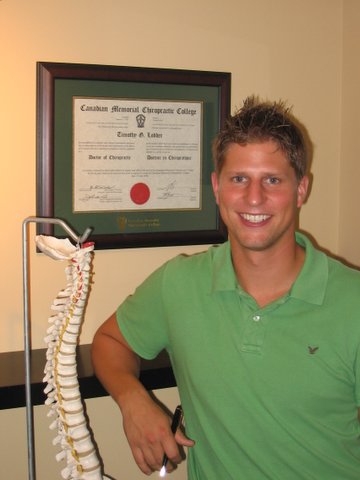|
Fun Fact:
The sciatic nerve is the longest nerve in your body. It runs from your spinal cord to your buttock and hip area and down the back of each leg
What is a “Pinched Nerve”?
A pinched nerve occurs when too much pressure is applied to a nerve resulting in an irritated or inflamed nerve. This is caused when surrounding tissues — such as spinal joints, bones, muscles or tendons – are not in their proper position or alignment or are not moving properly. Ultimately this pressure causes compression of the nerve which disrupts its function, causing pain, tingling, numbness or weakness in the affected area.
Where do Pinched Nerves occur?
A pinched nerve can occur anywhere in your body. For example, in your lower spine, causing pain that radiates down the back of your leg (sciatica) and the median nerve in your wrist that can lead to pain and numbness in your hand and fingers (carpal tunnel syndrome). These are just two examples; many other nerves can be pinched — including those in your neck, shoulder, elbow, low back, and other areas.
How do I know if I have a Pinched Nerve?
- Numbness or decreased sensation in a particular area
- Sharp or burning pain, which may radiate outward.
- Tingling, "pins and needles" sensations
- Muscle weakness or twitching in the affected area.
- Coughing or sneezing may aggravate the pain.
- The problems may be worse when you're sleeping.
Am I at risk for getting a Pinched Nerve?
- Posture. Poor posture adds pressure to your spine and nerves.
- Overuse. Jobs or hobbies that require repetitive hand, wrist or shoulder movements, such as assembly line work or computer work, increase your likelihood of a pinched nerve.
- Osteoarthritis. Nerves can become pinched in the bone spurs caused by osteoarthritis.
- Obesity. Excess weight can add pressure to nerves.
- Heredity. Some people appear to be genetically predisposed to conditions that lead to pinched nerves
How can Chiropractic & Massage Therapy help my Pinched Nerve?
- Chiropractic adjustments restore proper spinal alignment and movement in spinal joints which relieve pressure on the nerve.
- Massage Therapy: relieve pressure on the nerve from tight and imbalance muscles.
- Rest: rest for the affected area and stop any activities that cause or aggravate the compression.
- Exercises to strengthen and stretch the muscles in the affected area in order to relieve pressure on the nerve.
- Apply ice to reduce the inflammation associated with the pinched nerve
- Recommend modifications to activities that aggravate the nerve.
How can I prevent getting a Pinched Nerve?
- Maintain good posture.
- Incorporate strength and flexibility exercises into your regular exercise program.
- Limit repetitive activities, and take frequent breaks when engaging in these activities.
- Regular Chiropractic treatment to eliminate unhealthy areas in your spine caused by the stress/strain of your daily life that could cause a pinched nerve
- Maintain a healthy body weight

Contributed by:
Dr. Tim Lodder, B.Sc., D.C.
|